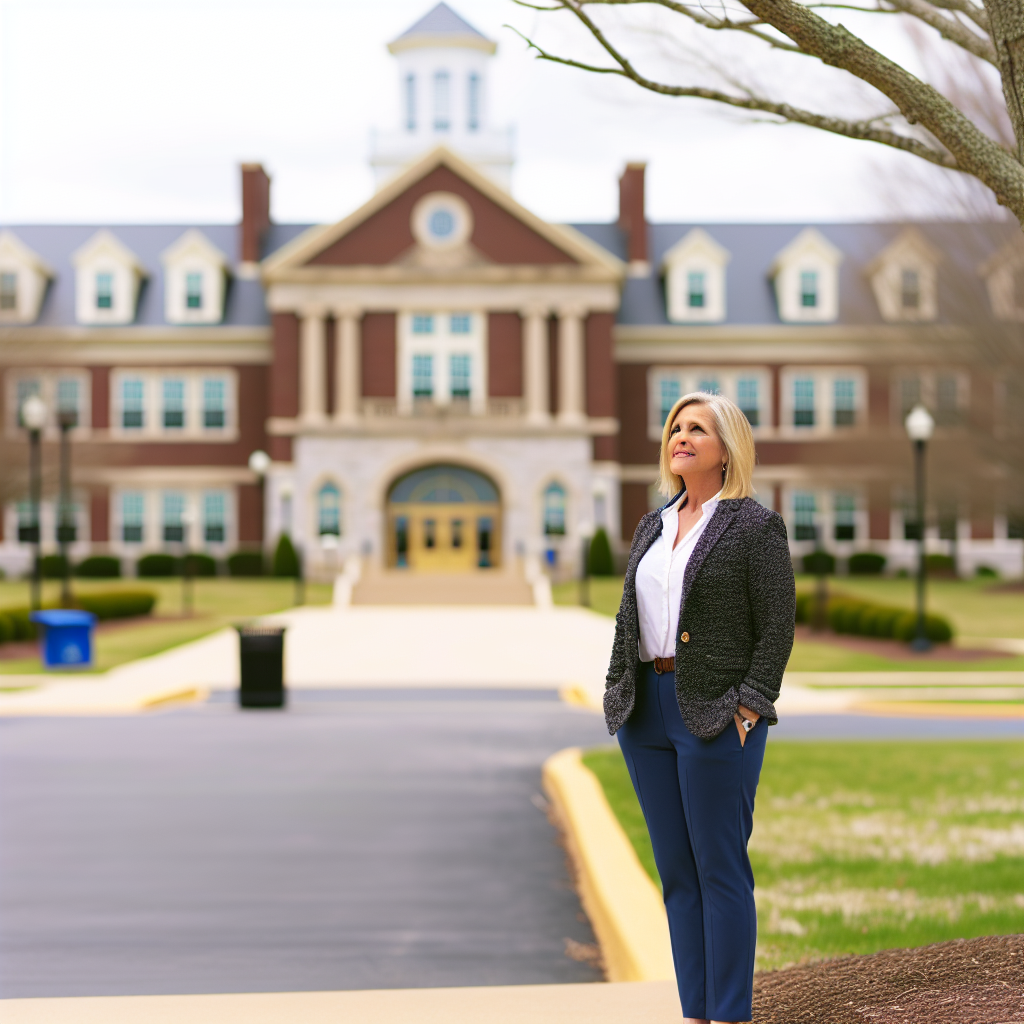
Marsha Blackburn, a prominent Republican Senator from Tennessee, has made significant strides in American politics, while Belmont University stands as a cornerstone of higher education in Nashville. This article delves into Blackburn’s illustrious career, the rich history and contributions of Belmont University, and their intertwined roles in shaping Tennessee’s political and educational landscapes. From her conservative stances to the university’s cultural impact, we explore how these elements intersect in the Volunteer State.
Marsha Blackburn’s Political Ascent and Conservative Legacy
Born in Laurel, Mississippi, in 1952, Marsha Blackburn (née Wedgeworth) grew up in a modest family, with her father working in sales and management. Her early life instilled a strong work ethic, leading her to Mississippi State University, where she earned a Bachelor of Science in home economics on a 4-H scholarship in 1974. During her college years, Blackburn was actively involved in student leadership, serving as both secretary and president of the Associated Women Students, honing skills that would later define her political career.
Blackburn’s professional journey began in sales and management, including roles at the Times Mirror Company and Mercantile Stores. In 1978, she founded Marketing Strategies, a promotion and event management firm that she still operates today. This entrepreneurial background fueled her entry into politics, starting as a founding member of the Williamson County Young Republicans and chairing the county’s Republican Party from 1989 to 1991. Her first major political foray was an unsuccessful 1992 congressional run, but it laid the groundwork for future successes.
By 1999, Blackburn secured a seat in the Tennessee State Senate, where she quickly rose to minority whip and opposed initiatives like a state income tax. Her tenure in the U.S. House of Representatives from 2003 to 2019 solidified her as one of the most conservative members, according to the National Journal. A staunch Tea Party supporter and ally of former President Donald Trump, Blackburn has consistently advocated against abortion, same-sex marriage, and the Affordable Care Act. Her 2018 Senate victory made her Tennessee’s first female U.S. Senator, defeating Democrat Phil Bredesen, and she won reelection in 2024. Throughout her career, Blackburn has focused on issues like technology regulation, criticizing big tech for alleged biases, and promoting economic policies that resonate with Tennessee’s business community.
Belmont University: Fostering Innovation and Community in Tennessee
Founded in 1890 as Belmont Women’s College by educators Ida Hood and Susan Heron, Belmont University has evolved from a women’s finishing school into a dynamic private Christian institution in Nashville, Tennessee. Initially merged with Ward Seminary in 1913 to form Ward-Belmont College, it transitioned to a co-educational Belmont College in 1951 under the Tennessee Baptist Convention’s influence. By 1991, it became Belmont University, severing formal ties with the convention in 2007 to embrace a broader “Christ-centered” identity while welcoming diverse students from over 30 countries.
Belmont’s academic offerings are robust, with nearly 9,000 students enrolled in programs spanning music business, nursing, and entrepreneurship—fields that mirror Nashville’s vibrant music and healthcare industries. The university’s Mike Curb College of Entertainment and Music Business is particularly renowned, producing graduates who contribute to Music City’s global reputation. Historically innovative, Belmont hosted Nashville’s first radio station, WDAA, in 1922, broadcasting music programs that reached hundreds of miles and foreshadowed the city’s broadcasting legacy.
In recent years, Belmont has gained national prominence by hosting high-profile events, such as the 2020 presidential debate between Donald Trump and Joe Biden. This event not only spotlighted the university’s state-of-the-art facilities but also underscored its role in civic engagement. Politicians, including Tennessee leaders like Senator Marsha Blackburn, have engaged with Belmont through speeches, town halls, and community initiatives, highlighting the institution’s influence on local policy discussions, particularly in education and economic development.
In summary, Marsha Blackburn’s trailblazing political career exemplifies conservative leadership in Tennessee, from her business roots to her Senate achievements, while Belmont University continues to drive educational excellence and cultural innovation in Nashville. Their connection, through events like the 2020 debate and shared focus on Tennessee’s growth, illustrates how political figures and institutions collaborate to advance the state’s interests. Readers interested in Tennessee’s dynamic landscape should explore Blackburn’s policies and Belmont’s programs for deeper insights into this influential synergy.